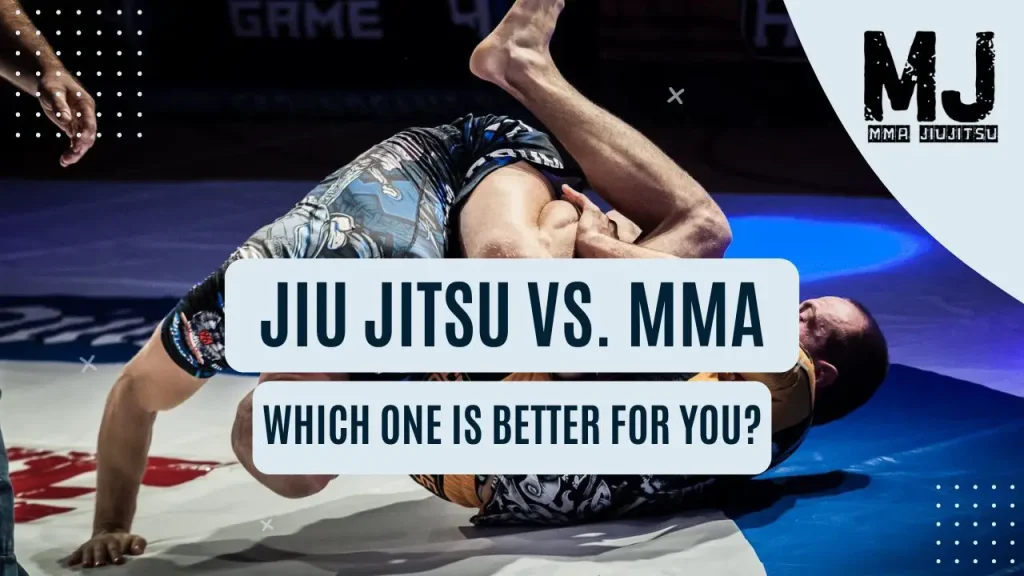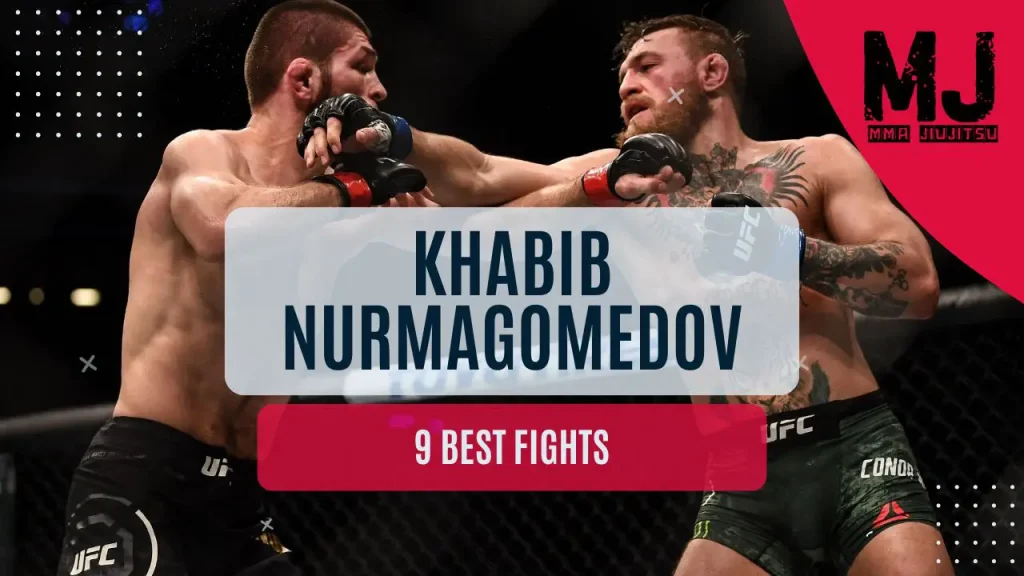
Starting MMA after 40 can seem like an impossibility. The physical demands of MMA are intense, and as we age, the body naturally loses resilience.
Joints might be stiff, muscles might need more time to heal, and once easy energy levels could now call for more effort.
Still, MMA appeals greatly, especially to those seeking self-discovery and personal growth despite these challenges.
The Struggle Between MMA Ambition and Reality.

Starting MMA after 40 feels like a struggle between ambition and reality most of the time.
The body is no longer in its prime, and the mind may be filled with doubts about the feasibility of high-level competition. This inner struggle can cause uncertainty since the physical restrictions of age seem to collide with the need to transcend them.
It can be challenging to completely commit to the rigorous nature of training if one is afraid of injury or if slower recovery times are possible.
Still, this resistance teaches important lessons in tenacity, fortitude, and overcoming fresh obstacles.
Mental Game and Physical Restraints.
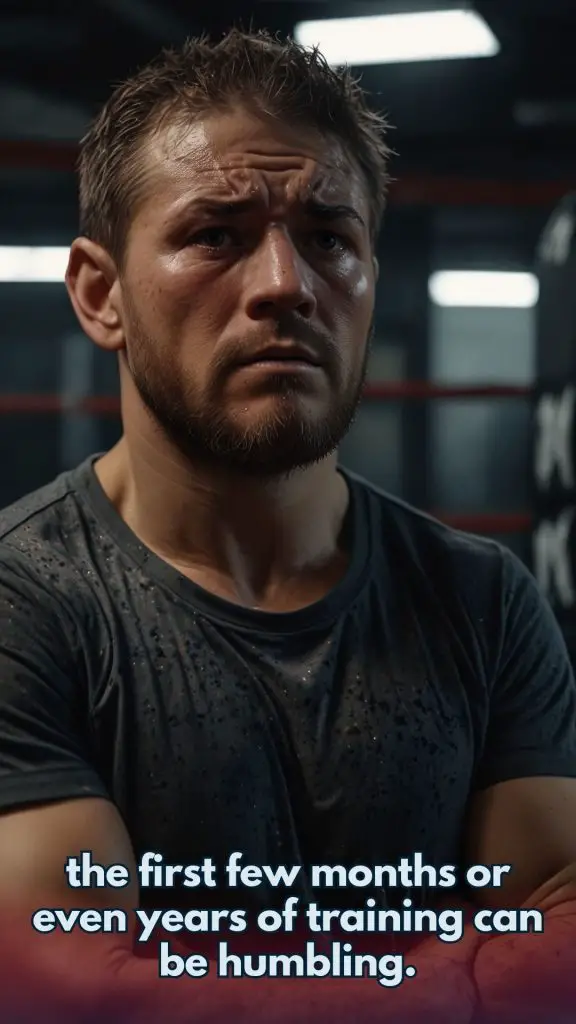
Although the body might not be as nimble as it used to be, MMA is as much a mental endeavor as a physical one. Many people find that moving into MMA later in life requires controlling expectations and conquering anxiety.
As practitioners meet younger, more physically capable opponents, the first few months or even years of training can be humbling. The knowledge that age might influence some facets of performance can first be depressing.
But this is where MMA shows its worth: its capacity to turn strategic thinking and mental toughness into potent weapons for success.
Starting MMA after 40 presents one of the toughest obstacles: learning how to leverage experience as a benefit. Though physical strength and endurance may not be what they once were, knowledge acquired over years—in life, employment, or another martial art—can be quite valuable.
The psychological approach to instruction gains equal relevance with the physical one. Emphasizing technique, timing, and strategy helps practitioners to work smarter rather than more forcefully.
Practitioners come to see over time that MMA is about using the mind to offset the natural decline of the body, not only about raw physicality.
Longevity: The Key Is Recovery and Consistency!
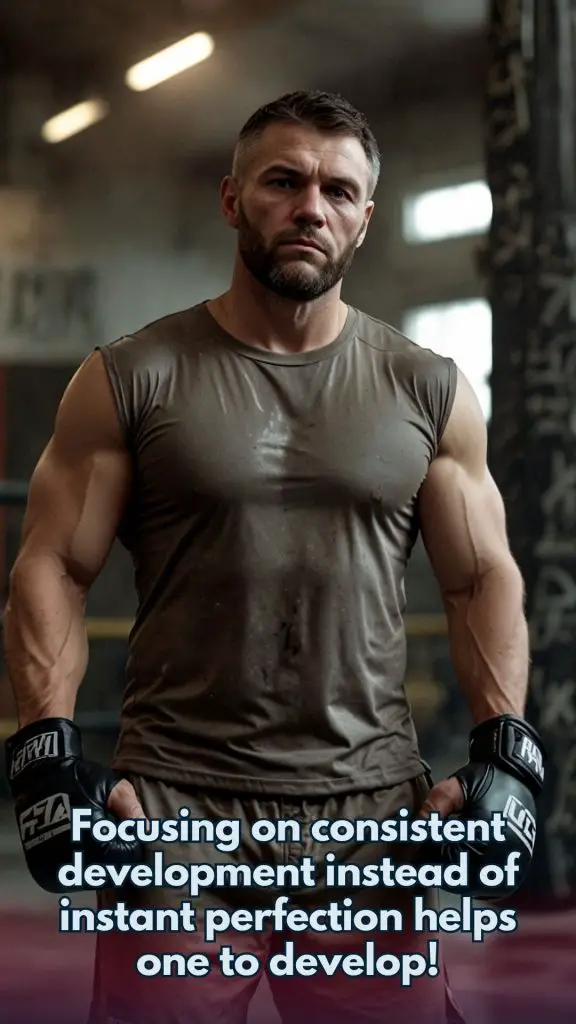
Managing recovery is one of the toughest challenges for anyone beginning MMA later in life. The body might heal more slowly following demanding classes or intense sparring sessions.
For someone who is accustomed to overcoming discomfort and tiredness, this can be aggravating. But for a lifetime in the sport, appropriate recovery becomes crucial.
People thus frequently discover they have to give rest, nutrition, and flexibility top priority in ways they never would have thought of before. This change of viewpoint not only aids in MMA training but also results in better practices outside of the gym, supporting general well-being.
Overcoming the challenges of beginning MMA after forty also depends much on consistency. Though results may not show right away, following the process is vital.
Usually, the most sustainable approach to getting ahead and preventing burnout is little, steady progress. The body changes with time to meet the new challenges, and practitioners start to feel in ways they never would have imagined, stronger and more competent.
Focusing on consistent development instead of instant perfection helps one to develop not only physical strength but also a strong attitude that goes much beyond the mats.
Consolidating Support and Community
For those beginning late in life, MMA’s community is sometimes the most motivating factor. Training with others can provide camaraderie and a sense of belonging that helps to simplify and enhance the travel experience.
Through trying circumstances, practitioners help one another; they encourage when training gets challenging or when progress seems slow.
For those negotiating the complexity of life outside of martial arts, the bonds created in the gym, where everyone is dedicated to the same goal of development and improvement, can be especially significant.
You should understand as you interact with training partners that MMA is about teamwork rather than only rivalry with others. Older professionals offer a great range of life experiences that would help the team dynamic.
The mentoring and shared knowledge that takes place in this setting helps us to develop a closer relationship by reminding us that personal development in MMA is as much about the people you train with as it is about the techniques you acquire.
Accepting the Trip Towards Self-Discovery
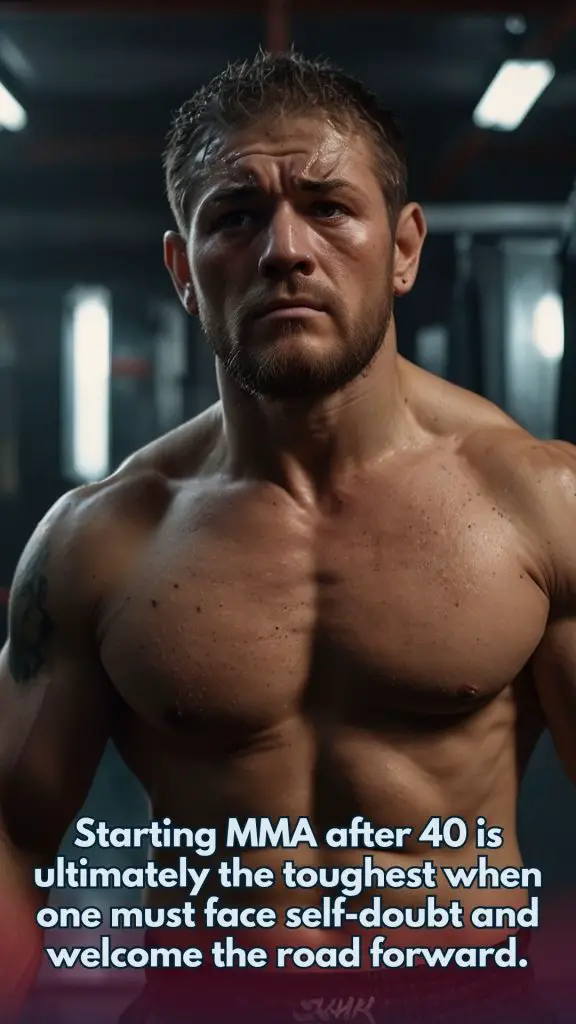
Starting MMA after 40 is ultimately the toughest when one must face self-doubt and welcome the road forward. Overcoming physical restrictions, facing vulnerability, and managing disappointments test the body as well as the mind.
Still, this very difficulty results in development. You will come to see as you keep learning that MMA is about finding the strength to push past constraints, adjust to new conditions, and build resilience—not only about reaching technical mastery.
Though it is a challenging road, the quest for personal development via MMA after 40 is fulfilling.
Entering the mat sets you on a road of transformation with advantages for both body and mind.
Navigating the challenges of starting later in life, you will discover that the lessons gained in MMA improve your life in innumerable different ways outside of the gym.
Developed in MMA, physicality, discipline, and mental toughness can become effective tools in overcoming obstacles in life, so demonstrating that development transcends age.
Takeaways: Beginning MMA Later on in Life!
Starting MMA after 40 can be daunting!
- Ages’ Challenges: Starting MMA after 40 presents challenges including joint stiffness, slower recovery, and less energy. Though the body might be weaker, the need for development and exploration can be enticing.
- Hope against Reality: Reality and ambition alternate constantly. As the body ages, questions can surface, but overcoming them teaches tenacity, resilience, and fortitude.
- Mental toughness counts: MMA after 40 calls for mental toughness to manage the humbling reality of training among younger, stronger rivals. As mental strength overcomes physical restrictions, strategy, timing, and technique become invaluable.
- Using Knowledge: Though age can reduce physical strength, experience in life or another martial art can be quite helpful. MMA becomes wiser when one emphasizes technique and strategy above strength.
- The worth of consistency and recovery: Recovery is what determines MMA success, particularly in aging bodies that heal slower. Rest, diet, and adaptability support a sustainable sport by enhancing training and well-being.
- The power of a supportive community: For older fighters, MMA offers support, camaraderie, and inspiration. Training with others helps one to grow and feel like one belongs since gym ties transcend only physical ability.
- Development and Self-Discovery: Starting MMA later in life is part of the self-discovery process. Overcoming physical restrictions, disappointment, and vulnerability develops resilience that changes the body and the mind.
Thanks for reading! ━ ◦ ❖ ◦━ Sign up for my newsletter to get new stories as soon as I publish them.


